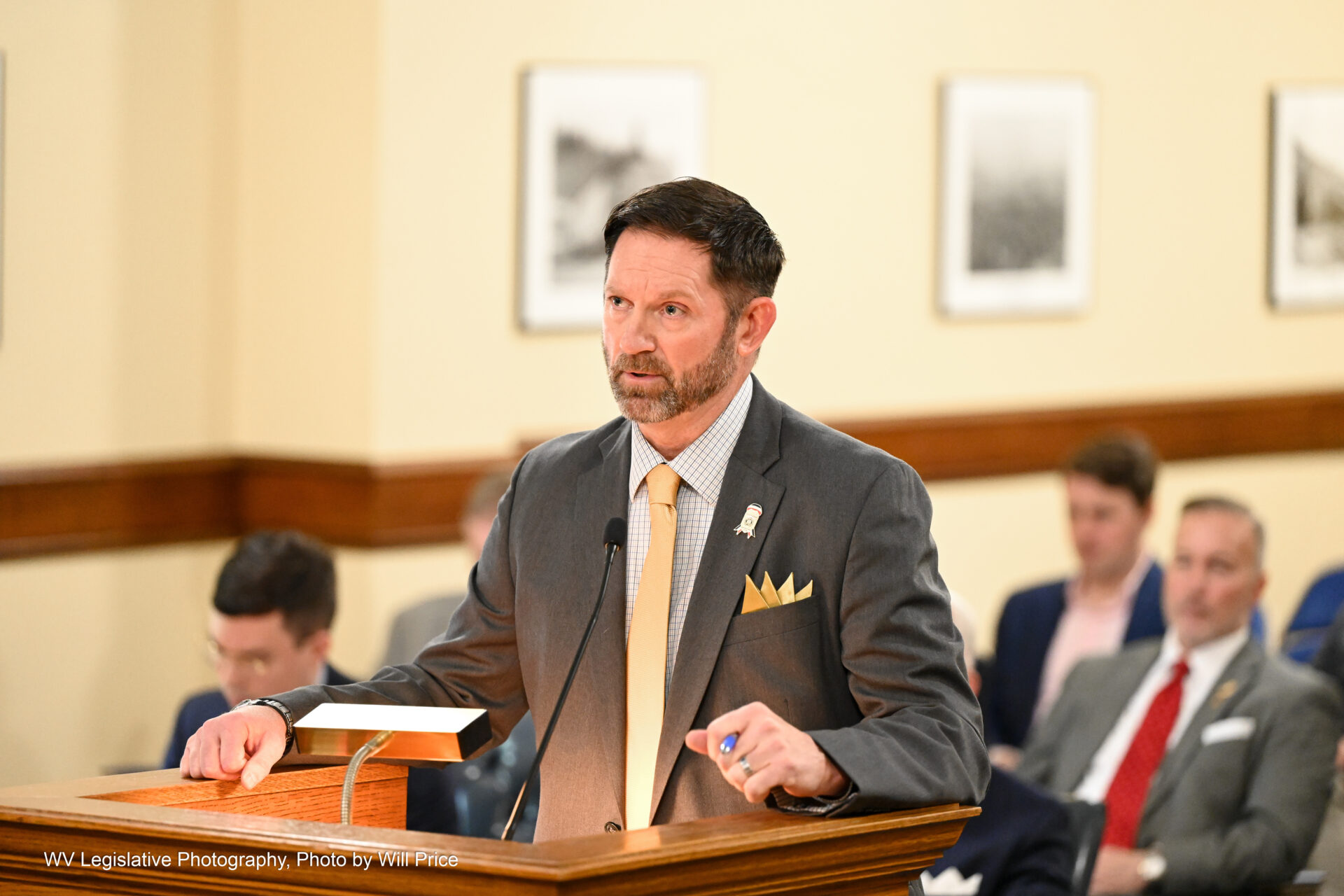While West Virginia remains in a corrections emergency with hundreds of National Guard members helping fill the ranks, progress is being made.
In a Wednesday media briefing, Department of Corrections and Rehabilitations Commissioner Billy Marshall said since May 2023, 227 guards have graduated from the guard training academy, with another 52 currently in class.
Marshall said a new recruiting campaign is working, and changes in the six-week class – getting recruits out on the floors at two and a half weeks – is giving recruits and supervisors decision making experiences.
“It’s really allowed the individual to get within our facilities behind the doors, to see if they’re cut out for this kind of a work,” Marshall said. “To see if those individuals are actually cut out for what the tasks are in our jails and prisons and juvenile centers. It takes a special kind of person to do what we do.”
In speaking before the Legislative Oversight Committee on Regional Jails and Prisons in mid-October, Marshall said there were 990 jail guard vacancies statewide. He said then that 330 to 340 National Guard members, under emergency orders, continued to staff non-inmate contact posts at correctional facilities.
Marshall also listed several facilities that are cutting their vacancy numbers.
“I’m proud to announce that the Lakin Women’s Correctional Facility, near Point Pleasant in Mason County, currently has zero staffing base vacancies,” Marshall said. “The Western Regional Jail near Barboursville, West Virginia, they’ve added 14 new officers in the last month with eight new officers starting soon. They’re one of the facilities that received the critical vacancy rate supplement.”
Marshall said the South Central Regional Jail is down to five vacancies, He said Moundsville’s Northern Correctional Facility has added 32 new officers in the last month.
Marshall said the Donald R. Kuhn Juvenile Detention Center in Boone County was down to one corrections officer vacancy. He said the Tiger Morton Juvenile Detention Center in Dunbar was fully staffed “for the first time that I could ever remember.”
Marshall gave credit to the new corrections pay plan that kicked in last month. In an August special session, lawmakers passed and the governor signed bills meant to bolster the state’s jails and prisons.
One of the bills, Senate Bill 1005, put $21.1 million toward increasing starting pay and changing pay scales for correctional officers. Two more, Senate Bill 1003 and Senate Bill 1004, provided nearly $6 million for one-time bonuses for correctional support staff, divided into two payments.
The state still faces multiple corrections lawsuits regarding jail conditions, overcrowding and inhumane treatment. Last month, the two sides reached a $4 million agreement in a class-action lawsuit over the alleged poor conditions at the Southern Regional Jail. Four separate $1 million state insurance policies were divided up among 9,200 inmates.
